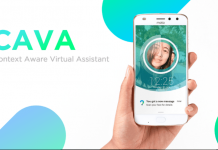The evolving relationship between artificial intelligence and the music industry has taken a significant turn. Universal Music Group (UMG), one of the world’s largest record labels, and AI music creation platform Udio have settled a copyright infringement lawsuit and announced a collaboration aimed at building a new AI-powered music platform. This marks a crucial moment in the ongoing debate about AI’s role in music creation and its potential impact on artists and copyright holders.
The Copyright Dispute and Its Resolution
Last year, major record labels—including Universal, Sony Music Entertainment, and Warner Records—filed a lawsuit against Udio and Suno, another AI song generator. The central claim was copyright infringement, alleging that AI-generated songs on Udio bore striking similarities to classic Universal Music tracks such as Frank Sinatra’s “My Way” and The Temptations’ “My Girl”. This lawsuit came amidst growing concerns within the music industry, amplified by an open letter signed by over 200 artists demanding an end to the “predatory” use of AI in music creation.
The settlement, terms of which remain undisclosed, appears to provide a pathway forward for both parties. Universal Music Group CEO Lucian Grainge emphasized the company’s commitment to protecting the rights of its artists and songwriters, suggesting that this agreement represents a step in that direction.
A Collaborative Future: AI-Powered Music Creation Platform
Beyond the legal settlement, UMG and Udio have agreed to launch a new AI-powered music creation platform in 2026. This platform aims to allow users to remix and reimagine their favorite songs with the assistance of AI, potentially even crafting new music in the style of specific artists.
Crucially, participating artists within the Universal Music roster—including stars like Taylor Swift, Kendrick Lamar, Ariana Grande, and Billie Eilish—will have the ability to control and permit the use of their music within the platform. Furthermore, they will receive financial compensation for their participation.
“Walled Garden” Approach and Controlled Use
To manage potential copyright concerns and ensure responsible use, the AI-generated creations on this platform will operate within a “walled garden.” This means users will not be able to download the AI-generated songs, preventing widespread distribution and potential copyright violations. The limited scope of the AI creation will be part of the transition to a new AI music service.
Broader Trends in the Music Industry and AI
This collaboration represents the first of its kind in the power struggle between AI companies and the music industry. It follows an earlier announcement where Spotify stated it was partnering with Universal and Warner Music Groups to develop “responsible AI products,” although specific details remain scarce.
The growth of AI tools has ignited significant debate within the music industry. Fears of “AI slop”—automatically generated, low-quality music—and the potential for fictitious bands to masquerade as authentic artists have fueled the concern. This settlement suggests a move towards controlled integration of AI, prioritizing artist rights and copyright protection while exploring the possibilities of AI-assisted music creation.
This agreement shows a shift in strategy for the music industry, exploring ways to harness the potential of AI rather than simply opposing it.
Ultimately, the Universal Music and Udio collaboration indicates a move towards a more nuanced and collaborative approach to the integration of AI within the music industry. It highlights the industry’s recognition of the technology’s potential—while also underscoring the importance of safeguarding the rights and interests of artists and copyright holders.


























































